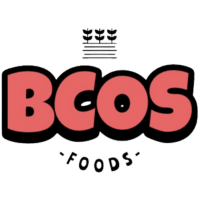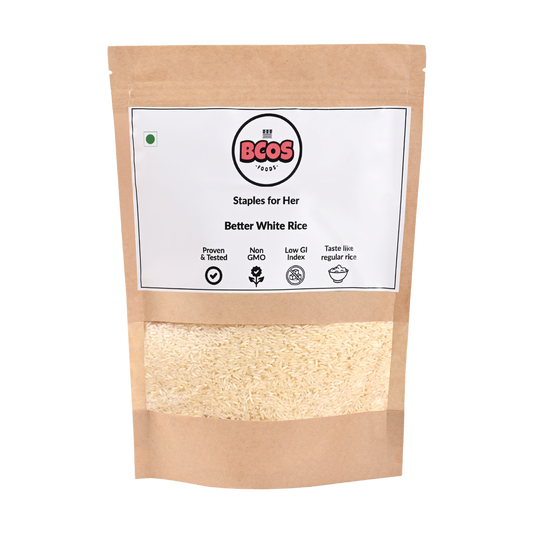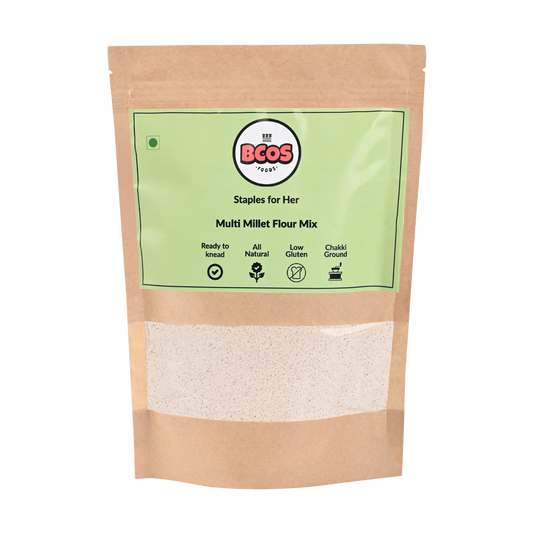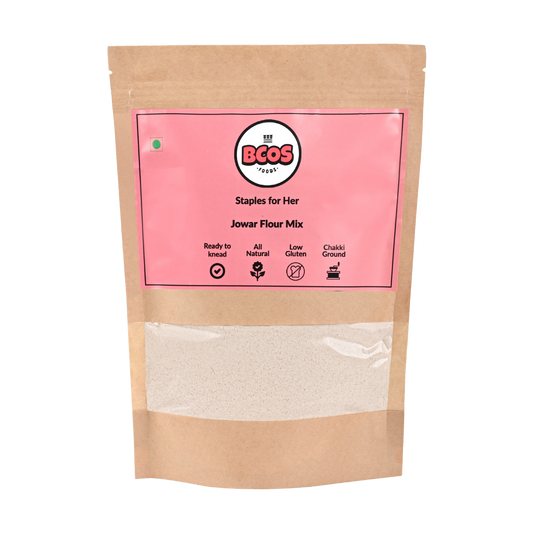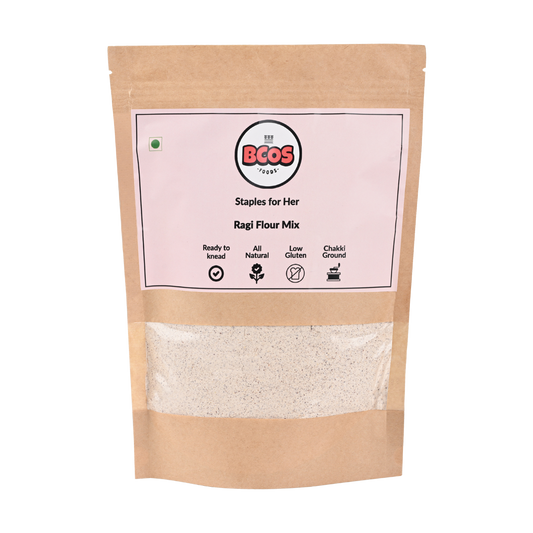Polycystic Ovary Syndrome, or PCOS, is a hormonal disorder that affects many women worldwide. It can lead to various symptoms such as irregular periods, weight gain, acne, and fertility problems. One potential contributor to PCOS symptoms is the consumption of refined flours. Let’s understand why refined flours are bad for PCOS and what alternatives women with PCOS should choose.
What are Refined Flours?
Refined flours are grains that have been processed to remove the outer bran and germ layers, leaving only the endosperm. This process removes most of the fiber, vitamins, and minerals present in the grain. The resulting product is a fine, white powder that is commonly used to make baked goods such as bread, pasta, and pastries.
How do Refined Flours Affect PCOS?
Refined flours are high-glycemic foods, which means that they raise blood sugar levels rapidly. This rapid increase in blood sugar triggers the release of insulin, a hormone that helps cells take up glucose for energy. However, women with PCOS are often insulin resistant, meaning their cells are less responsive to insulin’s effects. This often leads to higher insulin levels in the blood, which worsens PCOS symptoms.
Studies have shown that women with PCOS who consume high-glycemic foods such as refined flours have higher insulin levels and are more likely to experience weight gain, acne, and irregular periods. Moreover, refined flours lack fiber, which further contributes to insulin resistance and weight gain.
What are the Alternatives to Refined Flours for PCOS?
Women with PCOS can benefit from choosing whole-grain flours instead of refined flours. Whole-grain flours contain all parts of the grain, including the bran and germ, which are rich in fiber, vitamins, and minerals. Whole-grain flours have a lower glycemic index than refined flours, meaning they raise blood sugar levels more slowly and help prevent insulin spikes.
Some examples of whole-grain flours that women with PCOS should include :
- Whole wheat flour
- Ragi flour
- Jowar flour
- Chana flour
- Oat flour
In addition to using whole-grain flours, women with PCOS also benefit from incorporating more fiber-rich foods into their diet. Foods such as fruits, vegetables, whole grains, nuts, and seeds are all good sources of fiber and help improve insulin sensitivity and manage weight.
In conclusion, Refined flours are bad for women with PCOS due to their high glycemic index and low fiber content. These factors contribute to insulin resistance, weight gain, and other PCOS symptoms. Choosing whole-grain flours and fiber-rich foods helps women with PCOS manage their symptoms and improve their overall health. By making small changes in their diet, women with PCOS can easily take control of their health and feel better.
Also, do checkout our tasty millet flour staples to take charge of your nutritional modifications for long term PCOS management.
